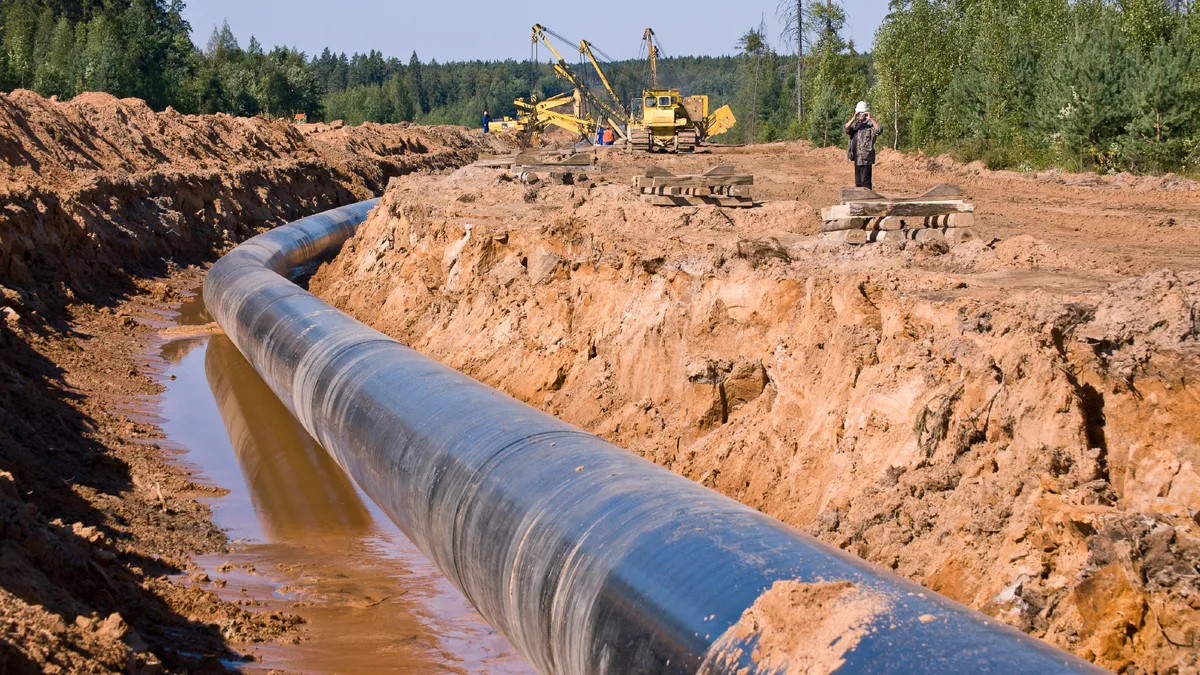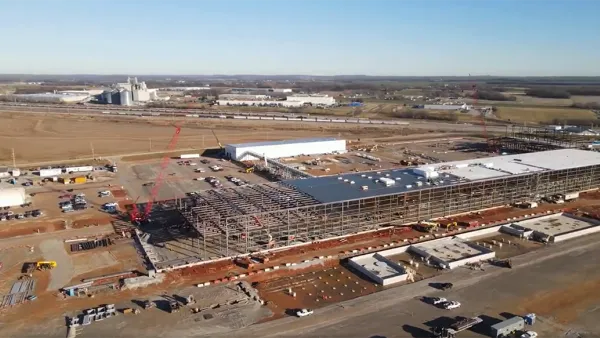Dive Brief:
- In June, construction companies announced billions of dollars' worth of liquefied natural gas (LNG)-related contracts in North America, and one energy company planned to get underway with a $10 billion LNG project in Nova Scotia, Canada.
- San Diego-based Sempra Energy selected international engineering and construction firm Bechtel to help develop its $8 billion to $9 billion LNG facility in Port Arthur, Texas, from planning through project startup. Bechtel will serve as the engineering, procurement, construction and commissioning (EPC) contractor for the complex, which will include two natural gas liquefaction trains, feed gas pre-treatment facilities, natural gas liquids and refrigerant storage, up to three LNG storage tanks and two marine berths. Bechtel also reported that it had received a notice to proceed from Cheniere Energy to start construction on the Train 3 expansion of the $11 billion Corpus Christi Liquefaction project in Corpus Christi, Texas.
- Natural Gas Intelligence reported in mid-June that TransCanada Corp. will award total contracts of approximately $800 million to First Nations contractors for work on its $3.8 billion, 418-mile Coastal GasLink pipeline to a planned $11 billion export terminal on the Pacific coast of British Columbia. In addition, Canada-based Pieridae Energy is preparing to start construction on a $10 billion LNG plant in Nova Scotia.
Dive Insight:
In order to be able to carry gas from the U.S. into Canada so that it can be exported from the planned LNG plant at the Goldboro Industrial Park in Guysborough County, Nova Scotia, Pieridae had to secure 20-year licenses from both the Canadian and U.S. governments. At least on the U.S. side, there is a move to make the process for this type of licensing a little less onerous.
Last month Republican Senator John Hoeven from North Dakota introduced the North American Energy Infrastructure Act, which would eliminate a presidential permit requirement for cross-border energy projects and transfer permitting authority to the relevant federal agency.
The act would not do away with environmental reviews or a contractor's obligation to adhere to state construction laws and regulations, but would seek to make permitting for these types of projects more transparent and standardized. The Federal Energy Regulatory Commission would continue to handle cross-border gas pipelines.














